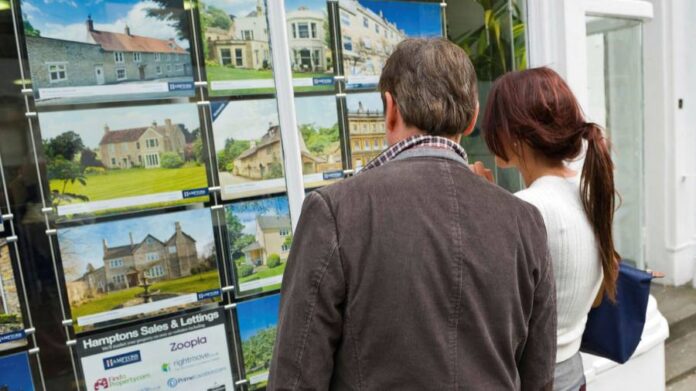UK property updates
Sign up to myFT Daily Digest to be the first to know about UK property news.
UK house prices in June rose at the fastest pace since 2004 as buyers raced to complete ahead of the winding down of the stamp duty holiday, while demand for larger properties outside London remained.
Average house prices jumped 13.2 per cent in the 12 months to June 2021, up from an annual rate of 9.8 per cent the previous month, according to data from the Office for National Statistics.
The rise was the highest annual growth rate in the UK since November 2004 against a backdrop of low interest rates and shortage of supply. The average price of a home in the UK hit a record high of £266,000, up £31,000 from the same time last year.
George Franks, co-founder of London-based estate agents Radstock Property, described the increase as “borderline obscene”.
Mike Scott, chief analyst at estate agency Yopa, said that purchases completed in June “were boosted by the rush to beat the deadline for the removal of all tax savings in Wales and the majority of the potential stamp duty savings in England and Northern Ireland”.
From July 1, the threshold up to which buyers in England avoid paying stamp duty decreased from £500,000 to £250,000. From October, thresholds will revert to the levels charged before the introduction of the measure in July 2020, which was designed to stimulate the housing market following the first coronavirus lockdown.
Gareth Lewis, commercial director of property lender MT Finance, said that cheap borrowing rates were “also helping fuel prices” along with a shortage of supply.
The rise in house prices was stronger in north-west England where it hit 18.6 per cent, while in London the increase was 6.3 per cent. The capital was the region with the lowest annual growth for the seventh consecutive month, according to the ONS data.
Mark Harris, chief executive of mortgage broker SPF Private Clients, said that the figures reinforce the view that “the race for space means buyers’ money is going further outside the capital, inevitably pushing up prices”.
But Paul Stockwell, chief commercial officer at Gatehouse Bank, said that the resumption of international travel should open the door to overseas investors, which “could lead to a change in fortunes for London”.
Detailed data from HM Land Registry, which is what the ONS analysis is based on, showed the sharp rise in June was driven by a 16 per cent annual price growth for detached houses with prices of flats or maisonettes increased at half that pace.
This supports the trend, which started after the housing market reopened last year following the first lockdown, of increased homeworking during the pandemic and a reduced social life boosting demand for bigger properties in less crowded parts of the country.
More recent data from mortgage provider Nationwide released earlier in the month showed that the pace of house price growth eased in July, reflecting the end of the stamp duty holiday. Despite the decline, house prices continued to rise at a double digit rate indicating other factors continuing to boost demand.
“While we expect things to steady later in the year, there is nothing in this data to suggest the brakes will be applied heavily to what has become a runaway market,” said Nicky Stevenson, managing director at national estate agent group Fine & Country.
Following the pandemic, house prices have risen sharply across many advanced economies, including annual rates of about 16 per cent in the US and Australia in the most recent months.
Letter in response to this article:
Do central banks have a part in creating inequality? / From Philip T Foster, Albourne, West Sussex, UK
Credit: Source link










